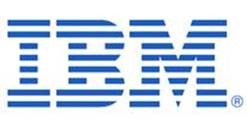The energy systems and the power grids of the world are undergoing a rapid transition. The advancements in computational tools have resulted in levels of efficiency, security, and reliability never seen before in the energy industry. Some of the recent developments such as decentralization of energy, decarbonization, electrification, digitalization, use of agile electronics and increased societal awareness and participation in power generation and storage are driving the revolution to create the “intelligent” (smart) and integrated energy systems of the future.
This series of MOOCs provides unique and multi-disciplinary insights on how to understand, design, plan and operate the intelligent and integrated energy systems in the rapidly evolving energy sector. The program focuses on four main aspects: technology, digitalization, policy and governance, and innovations for sustainable business, thereby providing the learner with a holistic view of the revolution in energy systems and power grids.
This program has been tailor-made by a team of professors from the Delft University of Technology and industry experts at the forefront of the revolution, guaranteed to take you on a journey that will:
- describe the complexities of energy systems and power grids, and the requirements and industrial impacts of integration, automation and optimization
- explain the technologies driving the change and provide practical hands-on experience in the use of advanced numerical and computational tools
- provide an in-depth analysis on the economic and societal impacts of changes in energy systems and the design of new interventions best suited for energy systems of the future
- discuss new market potentials for business models employing and utilizing the changes to the energy systems and power grids as opportunities.
On completion of the program, you will be equipped with skills to design your own complex energy system that is integrated with “intelligent” control with sound socio-economic planning and best suited for business opportunities in the global energy market.
 "What makes IBM unique is its ability to continually renew itself and create new markets. We are strong believers in lifelong learning. The energy transition is extremely important for combating climate change. One of the key drivers of the energy transition is the electrification of the energy system with the rapid increase in the supply of renewable power. This requires great flexibility and adaptability of energy systems organizations and companies. The IBM Virtual Enterprise elaborates on the application of exponential technologies to become flexible and agile in this energy
"What makes IBM unique is its ability to continually renew itself and create new markets. We are strong believers in lifelong learning. The energy transition is extremely important for combating climate change. One of the key drivers of the energy transition is the electrification of the energy system with the rapid increase in the supply of renewable power. This requires great flexibility and adaptability of energy systems organizations and companies. The IBM Virtual Enterprise elaborates on the application of exponential technologies to become flexible and agile in this energy "At DNV, our vision is to be a trusted voice to tackle global transformations. The energy transition is vital to decelerate climate change. Integrating energy systems in an intelligent way is a critical skill for the engineers, project managers, planners, policymakers, and scientists of the future. The program “Intelligent and Integrated Energy Systems” comes at the right time to tackle the challenges and complexities of today’s energy systems. It discusses the energy system’s physical, operational, digital, economic, policy, and business layers and their interrelation. What makes this program unique is that you are presented with all relevant aspects of the energy transition, allowing you to understand and transform the energy system on all sides. This is crucial because the energy system cannot reach the required level of integration and intelligence without adapting the legislative and economic infrastructures as well. All sectors need to cooperate if we want to realize a sustainable future. I would highly recommend this innovative program to everyone interested in the transformation of the energy system." - Bas Kruimer, Business Director Digital Grid Operations, Energy Systems, DNV
"At DNV, our vision is to be a trusted voice to tackle global transformations. The energy transition is vital to decelerate climate change. Integrating energy systems in an intelligent way is a critical skill for the engineers, project managers, planners, policymakers, and scientists of the future. The program “Intelligent and Integrated Energy Systems” comes at the right time to tackle the challenges and complexities of today’s energy systems. It discusses the energy system’s physical, operational, digital, economic, policy, and business layers and their interrelation. What makes this program unique is that you are presented with all relevant aspects of the energy transition, allowing you to understand and transform the energy system on all sides. This is crucial because the energy system cannot reach the required level of integration and intelligence without adapting the legislative and economic infrastructures as well. All sectors need to cooperate if we want to realize a sustainable future. I would highly recommend this innovative program to everyone interested in the transformation of the energy system." - Bas Kruimer, Business Director Digital Grid Operations, Energy Systems, DNV










